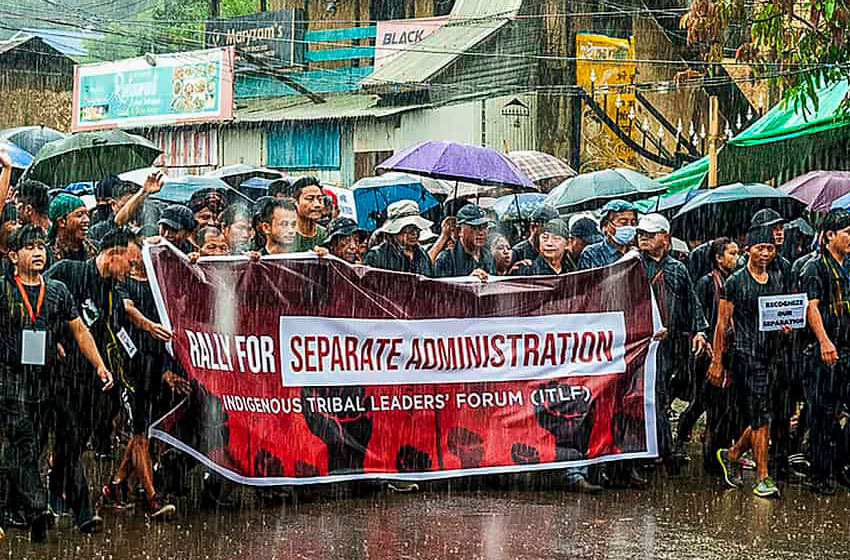Nearly a year after ethnic violence erupted in Manipur, the state remains a smouldering battlefield—its towns divided, its people displaced, and its government nowhere to be found. And while the Modi government finally imposed President’s Rule in February 2024, it has proven to be as useful as a bandage on a bullet wound. The truth is stark: the Centre has not just failed to douse the flames—it has fanned them through indifference, incompetence, and insidious political calculations. What began as a conflict between the Meitei and Kuki communities has morphed into a full-blown humanitarian crisis. Over 200 lives have been lost. More than 60,000 people remain displaced. Entire villages have been erased. Children grow up in relief camps, and women speak of atrocities with voices cracking from trauma and fear. And yet, New Delhi maintains an eerie silence, broken only by hollow appeals for peace and photo-op visits by central officials. In February, under mounting pressure and in view of the complete collapse of law and order, the Union government revoked the ineffective N. Biren Singh-led BJP government and imposed President’s Rule. But what should have signalled a new beginning has merely extended the status quo under a different name. The same local police forces, deeply distrusted and accused of partisanship, continue to operate. Central paramilitary deployments remain thin and uncoordinated.

Even basic services in violence-hit areas are dysfunctional. President’s Rule, in this context, is less of a solution and more of a bureaucratic shrug. The government also touted the revocation of the AFSPA (Armed Forces Special Powers Act) from select districts as a step toward normalcy. But it was premature and cosmetic. AFSPA’s rollback amid escalating ethnic conflict reflects either extreme naïveté or wilful neglect. You can’t withdraw emergency powers when the house is still on fire. The Army, once withdrawn, cannot simply be redeployed at will without undermining trust and efficiency. The real issue isn’t whether AFSPA is in force—it’s that the government doesn’t seem to have a plan beyond optics. So, what now? First, the central government must shed its passivity and appoint a neutral, empowered interlocutor to mediate between communities. This must be backed by a robust and impartial security deployment that prioritizes civilian protection over political allegiance. Second, the National Human Rights Commission should be given full access to investigate atrocities and recommend prosecutions. Impunity is the oxygen of conflict. It must end. Third, the state requires a special reconstruction package—not just to rebuild homes, but to restore trust. That includes education access for displaced children, trauma counselling for victims, and mechanisms for fair land and identity rights adjudication. Most importantly, Prime Minister Modi must break his silence and address the nation on Manipur. Leadership is not just about winning elections. It’s about facing inconvenient truths. The longer the government looks away, the more the embers of Manipur will scorch the moral legitimacy of the Indian state itself. India cannot afford to lose Manipur. And no government deserves to stay in power if it watches silently while a state bleeds.




